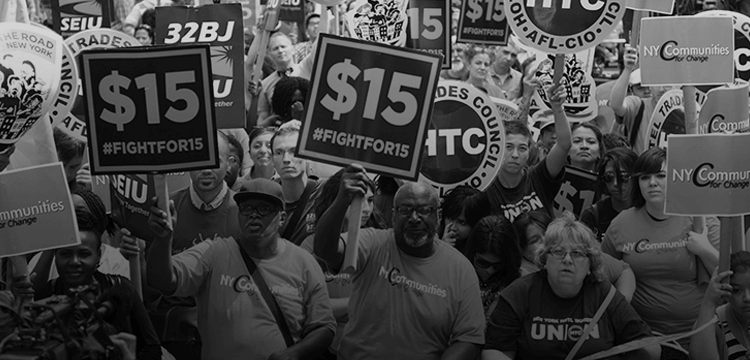The so-called “Fight for 15” movement has desperately tried to argue that it is on the side of workers, despite continued evidence showing that a $15 minimum wage would actually be bad for low-income Americans. New revelations over the past few days have made it abundantly clear that rather than standing up for workers, this union-funded effort exists for the sole purpose of advancing liberal political power.
California Governor Jerry Brown admitted as much when he signed the $15 minimum wage bill, plainly stating that, “economically, minimum wages may not make sense,” but he said that they do make sense, “politically.”
Brown, traveling to the state’s largest media market to sign the landmark bill, remained hesitant about the economic effect of raising the minimum wage, saying, “Economically, minimum wages may not make sense.”
These comments from the Governor come on the heels of a key California labor activist saying that a minimum wage increase will be “transformative politically,” despite the dire economic consequences.
Dave Regan is president of SEIU-United Healthcare Workers West, which represents more than 85,000 hospital workers in California and deployed more than 2,500 members to collect hundreds of thousands of signatures to qualify a minimum wage ballot initiative. He said that even if there were potential economic downsides, the effect of empowering workers to influence their own fates could be transformative politically.
On top of all that, the SEIU has said themselves that their campaign is not about actually passing legislation to increase the minimum wage, but merely just want to create a political movement that gives special interest labor groups more power.
It’s been a point of tension as many large labor unions, particularly SEIU, have fallen in line behind Clinton. “How does SEIU, whose premiere campaign is the Fight for $15, endorse the one Democratic candidate who says $15 is too much?” one exasperated labor leader vented to POLITICO after the union endorsed Clinton last November.
SEIU has defended the endorsement by noting that the Fight for $15 campaign is not about passing federal minimum wage legislation but about a grass-roots movement to raise wages. “If she’s in support of $15 in Buffalo, Rochester and Binghamton, it’s pretty safe to assume she’s supportive of $15 in many places across the country,” said an SEIU official.
While the extremist unions want the public to to believe their rhetoric about standing up for workers, the facts tell a different story. Their real motive, and the reason they are spending millions on this effort, is so they can achieve more political clout.

